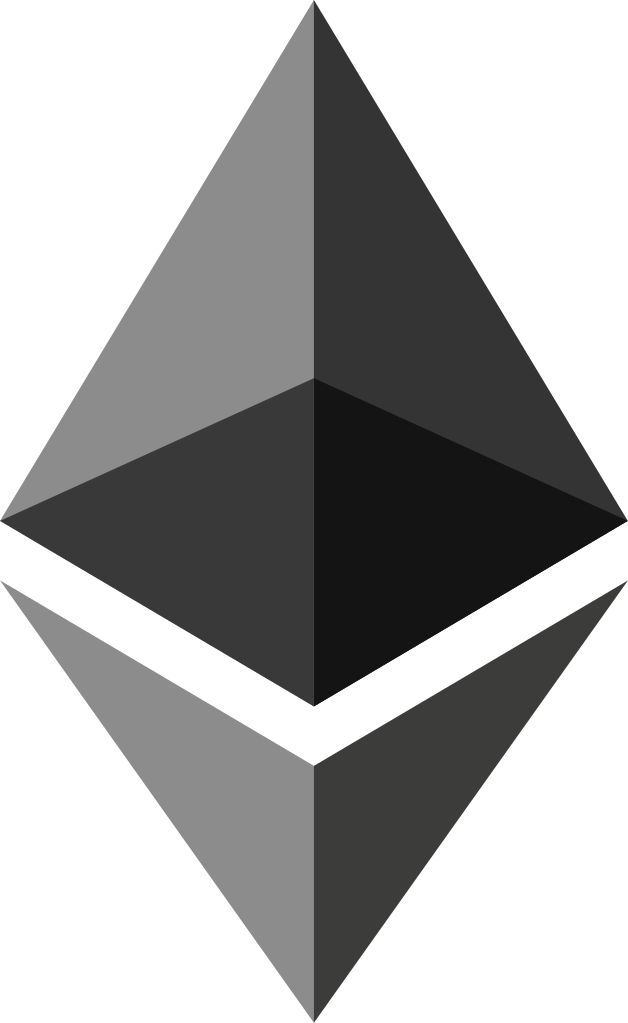Bandingkan Chainlink (LINK) vs Ethereum (ETH) Coin
This article is aimed at uncovering the differences and similarities between two significant cryptocurrencies in today's digital age, Chainlink (LINK) and Ethereum (ETH). While both have their distinct features and influence on the blockchain technology ecosystem, such a comparison can provide keen insights into their applications, benefits, and potential future developments.
User rating
Cryptogeek rating
About
|
ChainLink (LINK) is the native currency of the ChainLink platform. It represents an ERC-20 token is listed on multiple exchanges paired against major cryptos. At the time of writing, you can trade LINK against the fiat USD currency on Coinbase Pro.
Smart contracts are not able to access data on their own. Since connecting these contracts to data via node is deemed as a point of failure, using a decentralized service could be a solution.
Therefore, the ChainLink project sees its mission in the integration of the off-chain data into smart contracts through a reliable decentralized oracle network. LINK tokens hit the market in 2017 and the currency quickly made its way to the top 50 cryptocurrencies by market cap. Later it reached the top 20. ChainLink partners with a large banking network SWIFT.
|
Ethereum is an innovation network providing its own blockchain with its cryptocurrency (Ether or ETH). This blockchain hosts decentralized applications (DApps) that were first introduced by Ethereum. Another innovation of this platform is the implementation of smart contracts which has changed the perception of the possible use of the blockchain, revealing the potential of the technology to its fullest.
|
Type
Founding Date
Country
Languages
Team
Protocol
|
Public blockchain
|
Public blockchain
|
Current price (USD)
All-time high (USD)
Price change (24h)
Volume (24h)
Hashrate
Max Supply
Total supply
Circulating Supply
Transaction speed / Block time
Transaction fee
Mining profitability
Algorithm
Proof type
Fully premined
Smart contract address
Total coins mined
Is trading
Block reward
Block time
| Company |
|
|
| User rating |
User rating
5 / 5
3 user review
|
User rating
5 / 5
3 user review
|
| Cryptogeek rating |
Cryptogeek rating
4.2 / 5
|
Cryptogeek rating
4.6 / 5
|
| Trust Score
How it works
|
Trust Score
4.49 / 5
|
Trust Score
4.82 / 5
|
| About |
ChainLink (LINK) is the native currency of the ChainLink platform. It represents an ERC-20 token is listed on multiple exchanges paired against major cryptos. At the time of writing, you can trade LINK against the fiat USD currency on Coinbase Pro.
Smart contracts are not able to access data on their own. Since connecting these contracts to data via node is deemed as a point of failure, using a decentralized service could be a solution.
Therefore, the ChainLink project sees its mission in the integration of the off-chain data into smart contracts through a reliable decentralized oracle network. LINK tokens hit the market in 2017 and the currency quickly made its way to the top 50 cryptocurrencies by market cap. Later it reached the top 20. ChainLink partners with a large banking network SWIFT.
|
Ethereum is an innovation network providing its own blockchain with its cryptocurrency (Ether or ETH). This blockchain hosts decentralized applications (DApps) that were first introduced by Ethereum. Another innovation of this platform is the implementation of smart contracts which has changed the perception of the possible use of the blockchain, revealing the potential of the technology to its fullest.
|
| Type |
Type
token
|
Type
coin
|
| Founding Date |
Founding Date
2017
|
Founding Date
2015
|
| Country |
Country
No data
|
Country
Canada
|
| Languages |
Languages
No data
|
Languages
No data
|
| Team |
Team
Public
|
Team
Public
|
| Protocol |
Protocol
Public blockchain
|
Protocol
Public blockchain
|
| Current price (USD) |
Current price (USD)
No data
|
Current price (USD)
4718.9512
|
| All-time high (USD) |
All-time high (USD)
No data
|
All-time high (USD)
1432.8800
|
| Price change (24h) |
Price change (24h)
No data
|
Price change (24h)
2.93
|
| Volume (24h) |
Volume (24h)
No data
|
Volume (24h)
4104895897.05010
|
| Hashrate |
Hashrate
No data
|
Hashrate
190120
|
| Max Supply |
Max Supply
No data
|
Max Supply
No data
|
| Total supply |
Total supply
No data
|
Total supply
No data
|
| Circulating Supply |
Circulating Supply
No data
|
Circulating Supply
120708316.76639
|
| Transaction speed / Block time |
Transaction speed / Block time
No data
|
Transaction speed / Block time
15
|
| Transaction fee |
Transaction fee
No data
|
Transaction fee
No data
|
| Mining profitability |
Mining profitability
medium
|
Mining profitability
high
|
| Algorithm |
Algorithm
No data
|
Algorithm
Ethash
|
| Proof type |
Proof type
No data
|
Proof type
PoW
|
| Fully premined |
Fully premined
No data
|
Fully premined
No data
|
| Smart contract address |
Smart contract address
No data
|
Smart contract address
No data
|
| Total coins mined |
Total coins mined
No data
|
Total coins mined
111766505.06150
|
| Is trading |
Is trading
No data
|
Is trading
yes
|
| Block reward |
Block reward
No data
|
Block reward
2.000000000000
|
| Block time |
Block time
No data
|
Block time
15
|
Social
Website
Twitter
Advantages
|
Technological capabilities
Offers decentralized oracles
Significant presence on social networks
|
Well-known Founder
An expanding developer community
More than a cryptocurrency
Continues to attract more businesses
|
Disadvantages
|
Few guarantees for the investors
Little communication on further developments
|
Struggles with scaling
Uses a complicated programming language
High transaction fees
|
Rating
| User rating |
User rating
5 / 5
3 user review
|
User rating
5 / 5
3 user review
|
| Cryptogeek rating |
Cryptogeek rating
4.2 / 5
|
Cryptogeek rating
4.6 / 5
|
| Advantages |
Advantages
Technological capabilities
Offers decentralized oracles
Significant presence on social networks
|
Advantages
Well-known Founder
An expanding developer community
More than a cryptocurrency
Continues to attract more businesses
|
| Disadvantages |
Disadvantages
Few guarantees for the investors
Little communication on further developments
|
Disadvantages
Struggles with scaling
Uses a complicated programming language
High transaction fees
|
Chainlink (LINK) user rating is 5, based on 3 user reviews. Ethereum (ETH) user rating is 5, based on 3 user reviews.
We also calculate the special Cryptogeek TrustScore based on the characteristics of each coin.
Choose other companies
After an in-depth analysis of Chainlink (LINK) and Ethereum (ETH), it's clear that the two cryptocurrencies, each have their unique value propositions and use cases. While Ethereum primarily focuses on enabling smart contracts and decentralized applications with its more general-purpose blockchain, Chainlink facilitates secure and reliable connection between blockchains and real-world data. Each has its place in the greater blockchain ecosystem and is shaping our technological future in distinct ways. The decision to use, invest or follow either of them really depends on individual preferences and goals.
This article is aimed at uncovering the differences and similarities between two significant cryptocurrencies in today's digital age, Chainlink (LINK) and Ethereum (ETH). While both have their distinct features and influence on the blockchain technology ecosystem, such a comparison can provide keen insights into their applications, benefits, and potential future developments.

